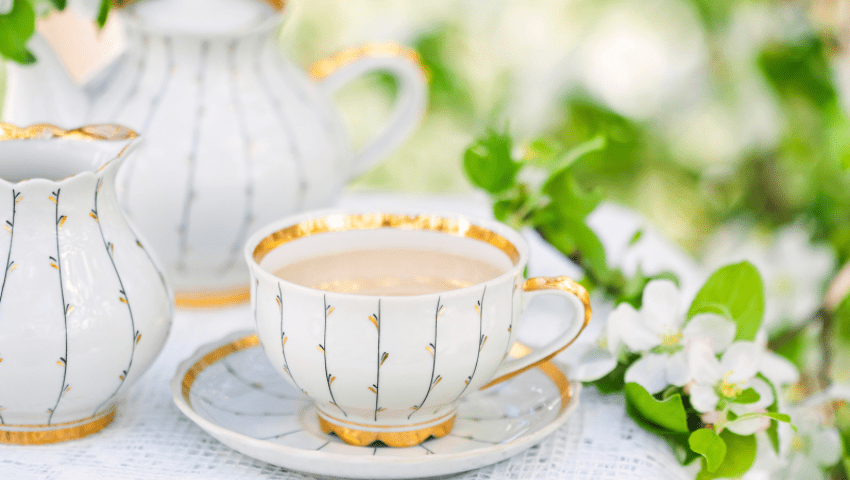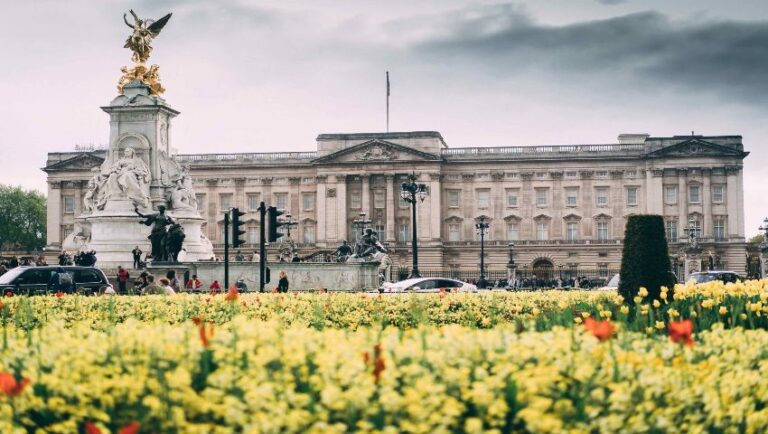Why Tea Still Defines British Culture (And What You’re Missing) – 2026
You don’t drink tea in Britain just for the taste. You drink it to steady a moment, to soften a conversation, to make sense of whatever’s just happened. Kettle on isn’t a habit—it’s a reflex, wired into how you cope, connect, and carry on.
In 2026, that instinct hasn’t weakened; it’s doing more work than ever. To see why tea still shapes British life—and what you’re overlooking when you dismiss it—you need to look beyond the mug.

Britain Drinks Less Tea Than It Used To — Yet Tea Matters More Than Ever
Here’s the contradiction most people miss.
Tea consumption per person in the UK has slowly declined since the 1990s. Coffee shops are everywhere. Energy drinks exist. Bottled everything exists.
So why does tea still dominate British identity?
Because tea in Britain isn’t primarily about thirst. It’s about permission.
Permission to pause. Permission to talk. Permission to not talk. Permission to cope.
In workplaces across the UK, the most common informal meeting still starts the same way: “Fancy a cuppa?” Not an agenda. Not a calendar invite. A kettle.
In 2025, the UK Tea & Infusions Association found that 71% of Britons still prefer traditional black tea, with or without milk. Convenience dominates too: 93% use tea bags, not loose leaf. This isn’t about artisanal ritual. It’s about reliability.
Tea as Social Technology (Long Before Smartphones)
Long before notifications, Britain perfected a low-energy social system.
Tea requires:
- Boiling water (time to breathe)
- A shared object (the kettle)
- A small wait (forced pause)
- A familiar script (“Milk?” “Two sugars?”)
That combination disarms tension.
This is why tea appears at moments of crisis. After accidents. During breakups. In hospital waiting rooms. At funerals. The drink itself is secondary. The structure is everything.
And it’s cheap emotional infrastructure. In 2026, a box of 80 standard tea bags costs about £2.65 in major UK supermarkets — roughly 3–4p per cup. Compare that to a takeaway coffee at £3.20–£4.00. Tea remains the most affordable shared comfort in the country.
How Tea Went from Elite Obsession to National Habit
Tea didn’t begin as a democratic drink.
In the early 1600s, tea reached England via Dutch and Portuguese traders. By 1657, it was sold in London coffee houses — marketed as medicine. It was eye-wateringly expensive. At its peak in the mid‑17th century, tea cost the modern equivalent of over £2,000 per kilogram.
Only the wealthy could afford it. Tea chests were locked. Servants were watched.
The turning point came in the late 18th century when the government slashed tea taxes from as high as 119% to 12.5% in 1784. Smuggling collapsed. Quality improved. Tea went mainstream.
By the early 1800s, tea had crossed a crucial line: it stopped being a luxury and became a daily necessity.
Afternoon Tea: The Original Productivity Hack
Afternoon tea wasn’t invented for elegance. It was invented for hunger.
In around 1840, Anna, the 7th Duchess of Bedford, found the long gap between lunch and dinner unbearable. Her solution: tea, bread, butter, and cake at around 4pm.
What began as a private fix became a social ritual — then a national institution.
Today, traditional afternoon tea survives mostly as an occasion rather than a habit. In 2026, expect to pay:
- £25–£40 per person in regional tea rooms
- £50–£80+ per person in London luxury hotels
(Always check official hotel websites for current prices.)
Modern Britain Still Judges You by Your Tea
This part hasn’t changed.
Milk first or last. One sugar or none. Mug or china. Bag squeezed or not.
These aren’t trivial preferences. They’re social signals. In offices, homes, and building sites alike, offering — or remembering — someone’s tea order still counts as basic social competence.
And yes, people notice when you get it wrong.
Tea’s Quiet Global Power
Britain didn’t just adopt tea. It exported the idea of tea as a social glue.
From India to the Middle East, from Russia to Japan, the act of welcoming someone with tea signals trust and hospitality. Britain recognises this instinctively — even if it rarely articulates it.
That’s why tea still appears at diplomatic events, community centres, protests, and peace talks. It lowers the temperature of human interaction.
What Tea Really Means in Britain in 2026
So no — tea isn’t just a drink.
It’s Britain’s default response to uncertainty.
When things go wrong, the kettle goes on. When things go right, the kettle goes on. When no one knows what to say, the kettle goes on.
And that’s why tea still defines British culture.
Not because it’s old. But because it works.






